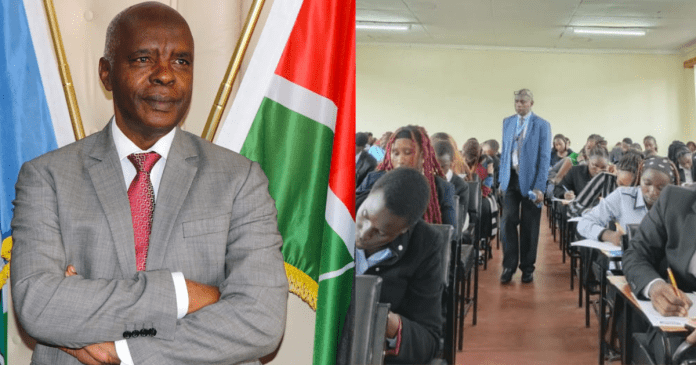Former Makueni governor Kivutha Kibwana has opened up about his humble beginnings, his long teaching career, and the values that have guided his life in public service.
Speaking during an interview on TV47, Kibwana gave a rare, candid glimpse into his personal life, reflecting on growing up in a large polygamous family, surviving the odds of a crowded household, and dedicating decades of his life to teaching law, even though the money was never much.
“I lectured in the university for 25 years, but I never made more than Sh100,000 a month. Even if I had stayed longer, I don’t think I would have earned more. Still, I don’t regret it. I chose public service, and that meant serving, not accumulating wealth. My peers who went private are now billionaires,” said Kibwana, who now teaches law at Daystar Law School.
Kibwana, who began teaching in 1977, just a year before founding president Jomo Kenyatta died, became a lecturer at only 23.
10m Kenyans default on Hustler loans: Govt wants law for forceful recovery
“I started teaching when I was 23. This was after I finished my second degree and joined the university as a lecturer. Those were different times. Sometimes I think about it and I’m like, how did we even get here?”
Born in a polygamous family of 29 children, Kibwana said his childhood taught him resilience and discipline, virtues that stuck with him in adulthood.
“One mother had 16, my late stepmother, and my biological mother had 13. So yes, 29 children. Imagine food being placed on the floor, not a table. If you were slow to eat, you missed out. It was like survival of the fastest,” he said with a chuckle.
“Fortunately, food and school fees weren’t a problem for the most part,” he continued. “My father, though he only went to school for two years, was a very sharp businessman. In the 70s, his shop in Taveta flourished, and he could easily turn over a million shillings. That was a lot of money back then.”
Despite being a successful academic, Kibwana never pursued wealth. He said that he once considered studying law for financial reasons but ultimately chose a different path.
“I wanted to be a teacher because those were my earliest role models, teachers and nurses. That’s what society respected back then,” he said.
He would go on to teach and mentor some of Kenya’s most influential legal and political minds.
Francis Atwoli Profile: Education background, career and wealth
“Whether it’s Chief Justice Martha Koome, Deputy CJ Philomena Mwilu, Smokin Wanjala, JB Muturi, or Githu Muigai, I taught many of them. Of course, I wasn’t the only lecturer, but I had a hand in shaping some of those journeys.”
On matters of love, Kibwana shared how he met his wife at a drama festival where she was performing.
“She was acting and I just knew. I even went backstage to meet her. We’ve been together since. We have four children now. You marry, not because you’re pressured, but because you’ve found someone who completes your story.”
But his journey hasn’t been without peril. Kibwana recounted moments in the 1990s when both he and his wife were abducted.
“I was taken just as I arrived home. My children saw it happen. I was taken to Ngong Forest. Luckily, my wife raised the alarm and I was released. Another time, she was forced out of her car and kidnapped.”
Even during his tenure as governor, threats remained real.
“I was nearly shot when some leaders tried to impeach me. My bodyguard literally pushed me to the ground. Several people were injured. It was risky business.”
Yet through all this, he remained committed to the idea of public service as a tool for real change.
“When you’re in charge of public resources, they’re not yours. They belong to the people. That’s something I always understood. Even when I worked in civil society, we got donor funding, but we remained accountable. I never touched what wasn’t mine.”
Kibwana, who helped pioneer people-centered governance during his time in Makueni, said true service meant giving the public a real voice.
“When you want to do good public service, involve the people. Don’t fear them. They have capacity. That’s why we had a people’s government in Makueni—committees from the village level up. That’s how you make the Constitution real.”
From a dusty floor shared with 28 siblings to influencing Kenya’s legal and political elite, Kibwana’s life is a lesson in service, humility, and purpose.








